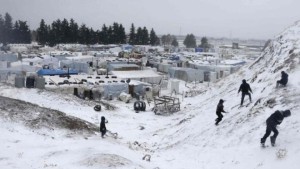The US Department of Homeland Security (DHS) has announced, in coordination with the State Department, the implementation of visa sanctions on Myanmar and Laos due to “lack of cooperation” in accepting their citizens who have been ordered removed from the United States.
As of July 9, the US Embassy in Yangon has discontinued the issuance of all B1 and B2 nonimmigrant visas for current officials at the Director General level and above from the Myanmar’s Ministries of Labor, Immigration, and Population (MOLIP) and Home Affairs (MOHA), and their immediate family members, with limited exceptions.
The Department of State may change the covered visa applicants or visa categories at any time, said a statement.
Visa suspensions may include any categories of visa or visa applicants, as determined by the Department Pursuant to her authority under Section 243(d) of the Immigration and Nationality Act, Secretary of Homeland Security Kirstjen M Nielsen notified Secretary of State Mike Pompeo that the governments of Myanmar and Laos have denied or unreasonably delayed accepting their nationals ordered removed from the United States.
As a result, Secretary Pompeo has ordered consular officers in Myanmar and Laos to implement visa restrictions on certain categories of visa applicants.
Without an appropriate response from Myanmar and Laos, the scope of these sanctions may be expanded to a wider population.
The suspension will remain in place until the Secretary Nielsen notifies Secretary Pompeo that cooperation on removals has improved to an acceptable level.
The decision to sanction a recalcitrant country is not taken lightly.
The DHS makes significant efforts, in collaboration with the State Department, to encourage countries to accept the prompt, lawful return of their nationals who are subject to removal from the United States.
Those efforts include diplomatic communications at the highest level of government.
As a general matter, recalcitrant countries who refuse to issue travel documents render meaningless the United States’ entire removal process as enacted by Congress in the INA, and such countries also fail to meet their international treaty obligations to take back their nationals who have been ordered removed.
Further, based on the Supreme Court’s decision in Zadvydas v. Davis, with narrow exceptions, aliens with final orders of removal, including aliens determined to pose a threat to the community or considered a flight risk, may not be detained beyond a presumptively reasonable period of six months if there is no “significant likelihood of removal in the reasonably foreseeable future.”
When recalcitrant countries like Myanmar and Laos delay or refuse to issue travel documents to their nationals or refuse to accept their nationals within this time period, US Immigration and Customs Enforcement (ICE) may be required to release dangerous criminals into communities across the United States.
Ultimately, without a travel document issued by an alien’s home country to confirm identity and nationality, ICE cannot complete the removal process of most aliens, with very limited exceptions.
Myanmar and Laos have not established repeatable processes for issuing travel documents to their nationals ordered removed from the United States. For this reason, ICE has been required to release Myanmar and Lao nationals into the United States.




